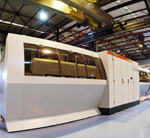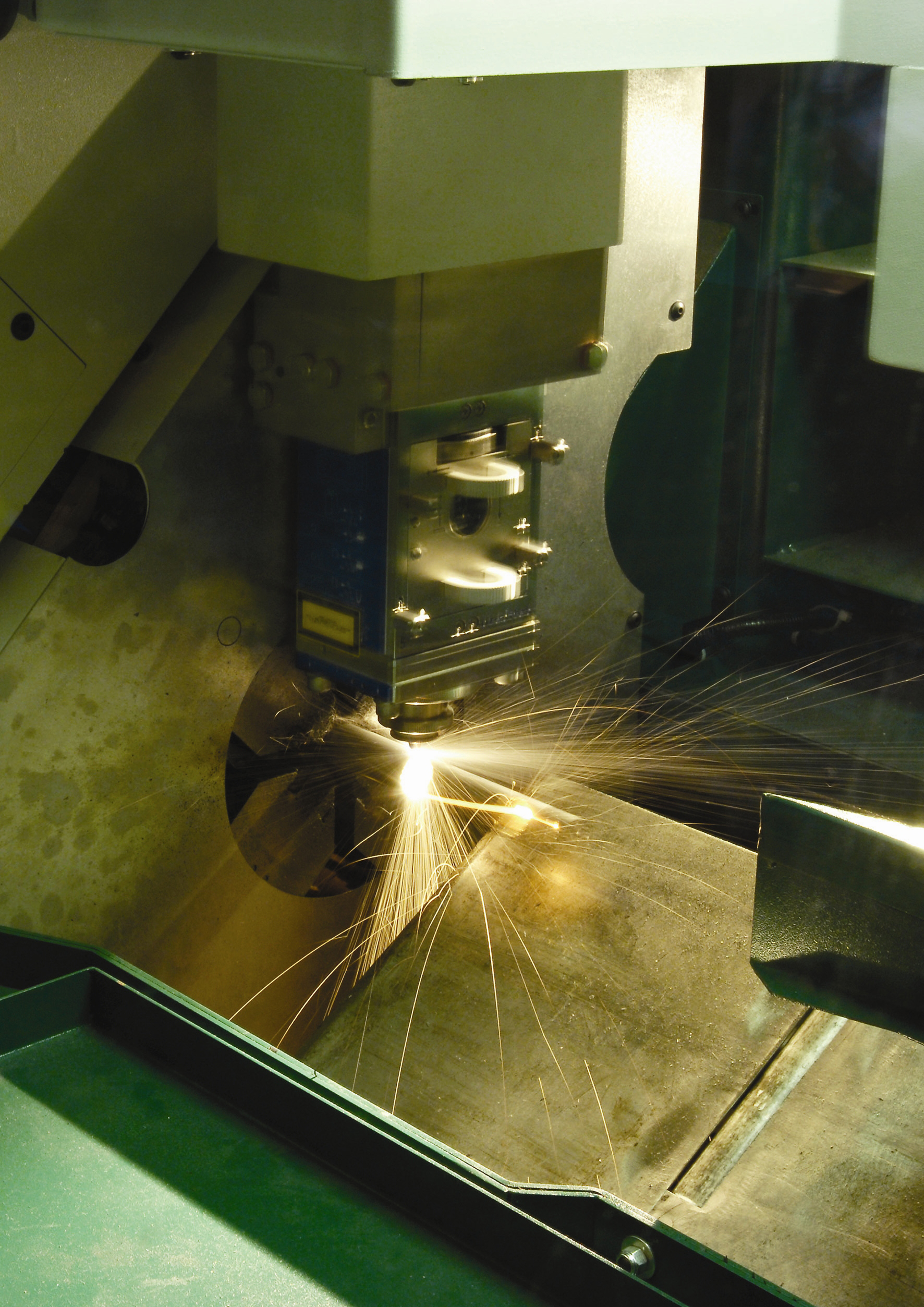24 October 2008
Community care bed design benefits from laser processing resource
 Healthcare equipment manufacturer Sidhil Ltd’s initial venture into CNC laser tube cutting and profiling has proved so successful that all three variants of the Halifax, West Yorkshire company’s electrically-operated community care bed are designated Solite laser. This new design – whether it is the Vari-Height, 2-Section or 4-Section variant – features a series of interlocking joints and such is the accuracy and consistency of parts processed on the BLM ADIGE LT 712D Lasertube that these joints require the minimum of welding. The result is that the Solite laser bed is strong and stable yet light and aesthetically pleasing.
Healthcare equipment manufacturer Sidhil Ltd’s initial venture into CNC laser tube cutting and profiling has proved so successful that all three variants of the Halifax, West Yorkshire company’s electrically-operated community care bed are designated Solite laser. This new design – whether it is the Vari-Height, 2-Section or 4-Section variant – features a series of interlocking joints and such is the accuracy and consistency of parts processed on the BLM ADIGE LT 712D Lasertube that these joints require the minimum of welding. The result is that the Solite laser bed is strong and stable yet light and aesthetically pleasing.
James Ibbotson is the person responsible for implementing change within the manufacturing environment. He joined the company in 1998 as a management trainee, working in various departments before eventually becoming Sidhil’s Operations Director. A decade later he describes the decision to invest in laser machining as a direct response to increasing competition from overseas and the need to drive down costs here in the UK. This objective has been achieved following the tube laser’s commissioning, with the LT 712D matching the annual output of previous highly labour-intensive methods within a few months. Several people have been redeployed from the tube manipulation section, payback is estimated as 30 months and there have been significant other benefits.
“We now have consistent quality with no defects, because once programmed, parts are always to specification,” says James Ibbotson, “and relevant production information can be called up at any time. This contributes to improved material utilisation because the machine will cut and profile several equal length parts before moving on to another program to cut a shorter part from the remaining tube length, leaving just a stub of waste material in the machine’s chuck.
 “Laser cut parts slot together exactly without the need for deburring prior to welding, while the laser produces perfectly round holes that avoid problems when the four component sections of the Solite laser, the heaviest weighing just 22 kg, are bolted together. This is crucial because the bed is designed to be easily assembled or disassembled by one person working alone without the need for special hand tools. There are no longer gaps between parts that need to be filled when welding, so the process is much faster with no wastage of welding gas or wire and the improved surface finish of each joint contributes to more efficient powder coating.“
“Laser cut parts slot together exactly without the need for deburring prior to welding, while the laser produces perfectly round holes that avoid problems when the four component sections of the Solite laser, the heaviest weighing just 22 kg, are bolted together. This is crucial because the bed is designed to be easily assembled or disassembled by one person working alone without the need for special hand tools. There are no longer gaps between parts that need to be filled when welding, so the process is much faster with no wastage of welding gas or wire and the improved surface finish of each joint contributes to more efficient powder coating.“
Prior to installing the BLM ADIGE Lasertube, Sidhil, one of several companies within the family-owned £60 million turnover Siddall & Hilton group founded 110 years ago, had decided it was more cost-effective to buy in specific lengths of tube for its high-volume product ranges rather than cut all its tube material in-house on several CNC saws. Now, however, Sidhil has standardised on less expensive random lengths for all its production requirements because, as James Ibbotson explains, “the laser machine can sort and cut random lengths with very little waste and much faster than the auto saws we used in the past”.
This BLM ADIGE LT 712D is equipped with Siemens Sinumerik 840D CNC and can process round, square, rectangular and flat-sided oval section tube up to 152 mm diameter, courtesy of a 2500 W laser source. The Siemens control allows the operator to manage all the main functions, including program downloads, while fast set-up and change-over times – around three minutes – means small batches can be managed as cost-effectively as longer production runs. Because Sidhil wanted a smooth transition from its previous manufacturing methods, it sent four people to the ADIGE factory in Italy for on-the-machine training. “From day one they were able to operate the new machine,” says James Ibbotson, “and while there was a continuing learning curve, production in Halifax was never affected.”
The reward for Sidhil’s £½ million investment in laser tube cutting and profiling has been steady growth, with the company selling more community care beds than its competitors, and a net increase in the number of people employed. “We believe the underlying reason for our success is that Sidhil is consistently meeting customers’ expectations,” says James Ibbotson. “Long gone are the days when a four to five week delivery schedule was acceptable: customers want their bed, cot, bedside table, chair or trolley delivered within two to three days of ordering, and this is so much easier to achieve now we have the flexibility and capability to manufacture tube components for any of these products at any time.
“We do source some products from overseas and we do keep a three-day buffer stock to be on the safe side, but the Lasertube is a very reliable and consistent machine and is clear evidence that we haven’t made the mistake of turning our UK factory into a warehouse. In fact, we have not stopped production here in Halifax, night and day, six days a week, with a single shift on Sundays, in the two years since the BLM laser machine was commissioned.”
- Contact Information
- Name: Jon Curtis
- Email: sales@blmgroup.uk.com

